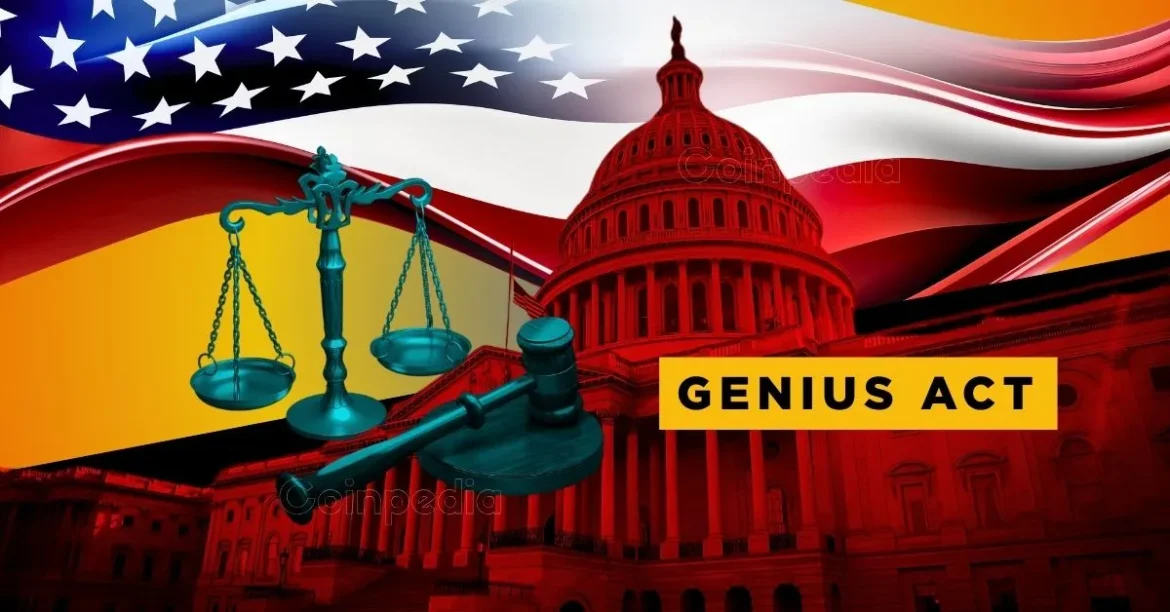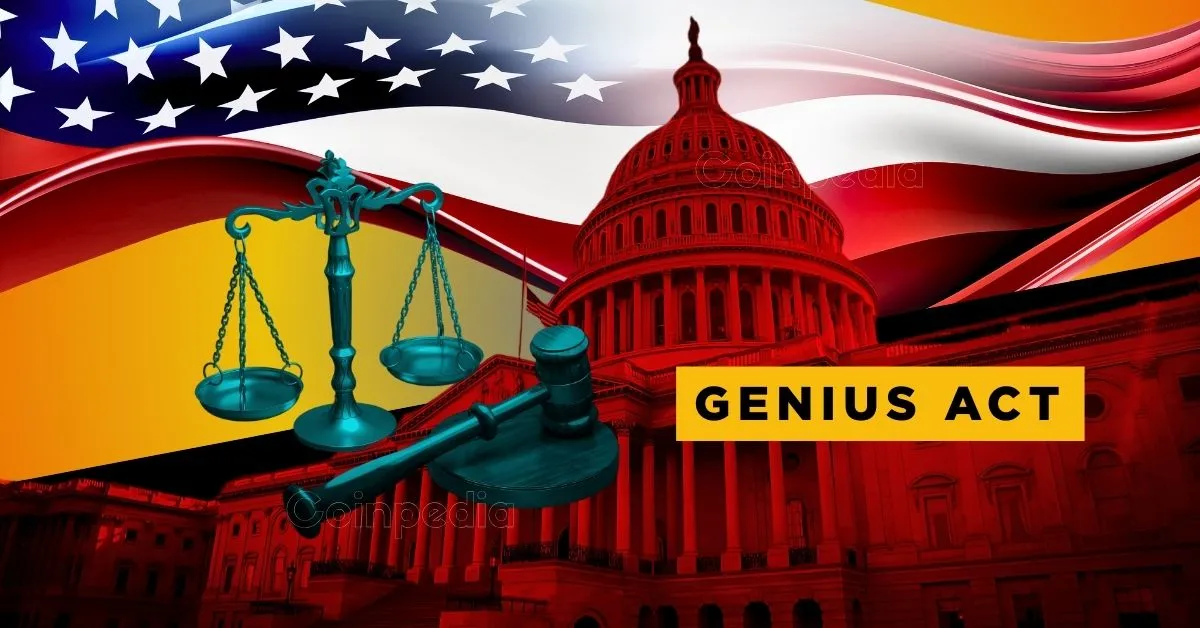A Landmark Moment: The Passage of the GENIUS Act and the Future of Stablecoin Regulation
The United States Senate has taken a significant step towards regulating the rapidly evolving world of cryptocurrency with the passage of the Guiding and Establishing National Innovation for U.S. Stablecoins (GENIUS) Act. This bipartisan achievement, approved by a vote of 68-30, marks a pivotal moment for the crypto industry and signals a growing willingness from lawmakers to establish a clear framework for digital assets. While the path forward remains uncertain as the bill moves to the House of Representatives, the Senate’s action represents a substantial victory for proponents of stablecoin regulation and a potential catalyst for wider adoption.
Understanding the GENIUS Act: A Framework for Stability
Stablecoins, cryptocurrencies designed to maintain a stable value relative to a traditional asset like the U.S. dollar, have become increasingly important in the digital asset ecosystem. They facilitate trading, provide a less volatile entry point for investors, and are integral to decentralized finance (DeFi) applications. However, the lack of comprehensive regulation has raised concerns about consumer protection, financial stability, and illicit activity.
The GENIUS Act directly addresses these concerns by aiming to establish a national regulatory framework for stablecoins. Key provisions of the bill focus on ensuring stablecoins are backed by sufficient reserves, subject to regular audits, and operate under robust oversight. This framework intends to provide clarity for issuers, protect consumers from potential risks, and foster innovation within the stablecoin market. The bill’s passage is seen as a crucial step towards legitimizing stablecoins and integrating them more fully into the traditional financial system.
Bipartisan Support and the Road to Passage
The GENIUS Act’s success in the Senate is largely attributed to its ability to garner bipartisan support. Sponsored by Republican Senator Bill Hagerty of Tennessee and co-sponsored by Chairman Tim Scott (R-S.C.), the bill attracted votes from both sides of the aisle. This collaborative approach demonstrates a shared recognition of the need to address the regulatory gap surrounding stablecoins.
The Senate Banking Committee initially advanced the bill with an 18-6 vote, signaling early momentum. Key stakeholders across the crypto industry also voiced their support in the lead-up to the vote, further bolstering its chances of success. The fact that the bill passed roughly six weeks after its introduction highlights the urgency lawmakers felt to address this issue. This contrasts with previous attempts at crypto regulation, where partisan divisions often stalled progress.
The $254 Billion Market and the Potential for Growth
The stablecoin market has experienced explosive growth in recent years, currently boasting a market capitalization exceeding $254 billion. This growth underscores the increasing demand for stable digital currencies and their potential to revolutionize the financial landscape. The GENIUS Act is widely viewed as a necessary step to unlock further growth and mainstream adoption.
By providing a clear regulatory pathway, the bill aims to attract institutional investment, encourage innovation, and build consumer confidence in stablecoins. A well-defined regulatory framework can also help to mitigate risks associated with stablecoins, such as potential runs or systemic instability. The passage of the GENIUS Act is therefore seen as a positive development for the entire crypto ecosystem, potentially paving the way for broader acceptance and integration of digital assets.
The House of Representatives: The Next Hurdle
Despite the Senate’s decisive vote, the GENIUS Act is not yet law. The bill now moves to the House of Representatives, where its fate remains uncertain. House lawmakers will need to decide whether to take up the Senate version of the bill, amend it, or pursue alternative legislation.
The House previously passed a stablecoin bill last year, but it failed to gain traction in the Senate at the time. This history suggests that reaching a consensus in the House could be challenging. Furthermore, the legislative landscape has shifted since then, with Democrats no longer holding the majority in the Senate. The timing is also crucial, with a vote in the House anticipated within the next three weeks.
There are also calls for the passage of the CLARITY Act alongside the GENIUS Act, indicating a desire for a more comprehensive approach to crypto regulation. The outcome in the House will ultimately determine whether the GENIUS Act becomes law and whether the United States can establish itself as a leader in the regulation of digital assets.
A Milestone Victory, But Not the Finish Line
The Senate’s passage of the GENIUS Act represents a landmark victory for the cryptocurrency industry and a significant step towards responsible innovation. The bill’s bipartisan support demonstrates a growing recognition of the potential benefits of stablecoins, as well as the need to address associated risks. However, the journey is far from over.
The bill’s success hinges on its ability to navigate the complexities of the House of Representatives and ultimately be signed into law. Even if enacted, the GENIUS Act will likely be just the first step in a broader effort to regulate the rapidly evolving world of digital assets. Ongoing monitoring, adaptation, and collaboration between lawmakers, regulators, and industry stakeholders will be essential to ensure that the regulatory framework remains effective and fosters a vibrant and responsible crypto ecosystem. The future of stablecoins, and indeed the broader crypto industry, now rests on the decisions made in the coming weeks.





